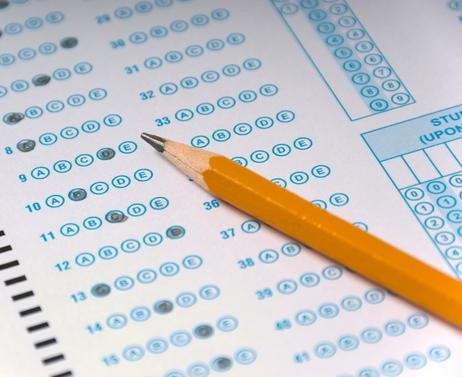Choosing which colleges to apply to is a big decision and not one that should be made lightly. You have to consider factors such as class size, location, degree options, student-teacher ratios, and more. With so many options to choose from, things can get pretty stressful.
In all the flurry of trying to pick a college, you might forget about something even more important – college admissions exams. It doesn’t matter what schools you want to apply to if you don’t do well enough on your college admissions exams or, worse if you forget to take them entirely.
The SAT and the ACT are the two most popular college admissif2009 reportons exams, and both are universally accepted by colleges in the United States. If you’re like many high school students, you may be wondering what the difference is between these two tests and which one you should take, if not both of them. Keep reading to learn what every high schooler needs to know about these exams and how to prepare for them.
How Important Are Test Scores for College Admissions?
Most colleges and universities in the United States consider an applicant’s score on college admissions exams like the SAT and ACT. Many schools have a minimum score they will accept, though some schools weigh these scores more heavily than others. Though each school is different, the fact remains – scoring well on college admissions exams is important.
Though you should definitely do your best on the SAT or ACT, it is important to remember that these scores are not the only factor college admissions staff consider. But just how important are they?
The purpose of college admissions exams is to create a common standard for all college applicants. In theory, a student’s score on these tests helps colleges evaluate an applicant’s academic aptitude and preparation for college. How heavily these scores are weighted depends on the school’s individual policies and approach to admissions. There are also other factors that are taken into consideration.
In addition to SAT and ACT scores, colleges look at the following:
- High school grade point average (GPA)
- High school course load and curriculum
- Participation in extracurricular activities
- Recommendation letters
- Application essays and personal statements
Many college admissions counselors will admit that these factors are more important in determining whether an applicant is accepted or not. For many schools, SAT and ACT scores simply serve to set the bar for minimum expectations, helping limit the number of potential applicants for consideration. The more selective the school, the higher the target score, so it pays to get the highest score you possibly can, regardless of whether you’re taking the ACT or the SAT.
This video from The Princeton Review discusses how to decide which test to take.
What High Schoolers Need to Know About the SAT and ACT
Many high schoolers spend months stressing out about college admissions tests when, in reality, there are many factors they should be thinking about. Test scores are just one of the factors college admissions counselors consider, but they are still important for other reasons. Here are some of the other ways colleges use admissions tests:
- Colleges use SAT and ACT scores to compare students that come from different high schools with different curriculums and levels of academic success – it helps even the playing field.
- Most schools publish the average score of their students or a range – potential applicants can use that information to determine whether they are a good candidate for the school.
- When a student signs up for the SAT or ACT, you can indicate which schools you want to receive your scores – you may also hear from schools based on the combination of your scores, grades, and academic interests.
- Many schools use SAT and ACT scores alone or in combination with other factors to award merit-based scholarships – you might even automatically earn a scholarship for scores above a certain level.
- Admissions tests like the SAT and ACT evaluate the math, reading, and writing skills you’ll need in college, so many schools use those scores to determine placement in college classes.
As you can see, there are many ways that your college admissions exam scores can impact your application. Most schools require a test score for an application, though some schools let you pick and choose the best combination of scores if you take the test more than once.
Now that you have a better understanding of how colleges use your SAT and ACT scores, you may be wondering about what makes these two tests different. Here is some important information to know about these two exams:
- The SAT contains three sections while the ACT contains four. The SAT has reading, writing, and math. The ACT has English, math, reading, and science.
- Both the SAT and the ACT have an optional essay section.
- The SAT and ACT both emphasize algebra questions in the math section, though the ACT’s section usually includes a wider range of mathematical concepts (such as matrices, logarithms, and graphs of trig functions).
- Less than 10% of the SAT’s math section focuses on geometry and trigonometry compared to the ACT – the SAT focuses more heavily on algebra along with some questions about modeling and data analysis.
- The SAT provides a list of major math formulas at the beginning of the test, but the ACT does not – you need to memorize common math formulas yourself.
- The ACT allows you to use a calculator for the entire math section while the SAT has a No Calculator (20 questions) part and a Calculator (38 questions) part.
- There is no science section on the SAT but the ACT tests for knowledge of scientific terms and experience gathering scientific data from charts and graphs.
- In the reading section, the SAT will tell you what line they are referring to for a specific question whereas the ACT will not – all SAT reading questions proceed in chronological order.
- The SAT has evidence-supporting questions in the reading section, but the ACT does not – these questions ask you to cite specific evidence to support the answer to a previous question.
- Both the SAT and ACT have writing/English sections based on passages, but the topic varies – the ACT focuses on grammar/punctuation/sentence structure while the SAT focuses on questions about writing style.
It should now be clear that these two tests are different in some very specific ways. Having a greater understanding of those differences can help you decide whether the ACT or the SAT is the right test for you. Another factor to consider is the amount of time provided. Generally speaking, the ACT gives much less time per question which can make the challenge of answering difficult questions even greater.
If you’re still not sure which test is the right choice for you, take a practice test for each. Find a full-length practice test online and simulate the testing conditions. When you’re finished, compare your scores for both to see whether there is a noticeable difference. You can also compare your experience with the test – if you are stronger in reading and writing skills than in math, for example, one test might be a better fit than the other.
This video looks at the differences between the two tests.
Tips for Prepping for the SAT and ACT
Once you’ve decided between the SAT and the ACT, the next step is to start studying. When it comes to studying for college admissions exams in general, there are some common study tactics:
- Official SAT or ACT prep books (available from College Board and ACT.org online)
- Free study guides and practice tests are available online
- Private and group study sessions through affiliate school programs and private tutors
- The annual Preliminary SAT (PSAT) offered by the school
The biggest question high school students have about studying for the SAT and ACT is whether private or group tutoring sessions are worth it. Unfortunately, test prep tutoring is very expensive, so that’s an additional factor you have to consider on top of the time commitment added on to your personal studying. The cost to hire a private tutor or to attend group study sessions is much higher than the cost to take the test itself, and it is unclear whether it will actually increase your test score.
According to a 2009 report released by the National Association for College Admission Counseling (NACAC), the average gain for test-prep turning classes was around 30 points for the SAT and 1 point for the ACT. This is not insubstantial, but you must consider that these classes were boasting point gains over 250 for the SAT. By now, most test-prep courses have dropped any claims of point gains.
If you’re not sure whether the cost of private and group tutoring sessions is worth it, you can prepare for the SAT and the ACT on your own for free. Here are some general study tips for these exams:
- Familiarize yourself with the structure of the test you’ll be taking as well as the types of questions. There are slight differences between the SAT and ACT so take a practice test or get a test-specific study booklet.
- Divide your study time between completing practice questions and taking timed practice tests – you need to know how to find the answers, but you also need to be able to do it quickly.
- Take advantage of free online resources such as practice tests and sample questions available at College Board and ACT.org.
- Invest in a good study book specific to the test you are taking – many of them include questions or full practice tests based on prior exams – if you’re not sure which book is best, ask your high school counselor for recommendations.
- If you’re having trouble studying on your own, consider attending a test prep class or create your own with fellow students – your school might even offer a free study class.
- Familiarize yourself with common math formulas and concepts so you can recall them quickly when needed during the test – the SAT provides a list of formulas, but the ACT does not (plus, it helps to have them memorized anyway so you don’t have to waste time looking them up).
- Practice your vocabulary with flashcards – use them in your spare time to make sure the words really stick in your memory. You can also work on your vocabulary by reading challenging books and articles outside of your normal reading list.
- Take advantage of mobile technology with ACT and SAT preparation apps – you can create a test prep schedule to track your progress, use vocabulary flashcards, and take practice questions when you are on the go.
It’s a good idea to take a practice test before you really dive into studying so you can take a look at your scores and know where to focus your time. If you have a specific timeline for studying (i.e., a testing date as the deadline), you can plan out your study schedule and take practice tests along the way to measure your progress. If your testing date is approaching and your practice scores haven’t significantly improved, you can consider pushing back your test date until you’re better prepared.
Frequently Asked Questions About SAT and ACT
Applying for college can be stressful and even confusing at times – especially with two different tests to choose from. Many high schoolers find themselves wondering whether one test is easier than the other or whether different studying tactics apply. Here are some of the most frequently asked questions about the SAT and ACT to answer your queries:
1. Do I have to take the SAT or ACT?
The SAT and ACT are generally not a requirement for graduation from high school, though many colleges require these tests for the application. Though you may not have a choice whether you take a college admissions exam, you do have the ability to choose which one you take.
2. Is one test easier than the other?
Whether one test is easier than the other is completely subjective – it matters which subjects you are better with and how much you study. For example, the ACT has a science section, but the SAT does not, so if you are a strong science student you may find the ACT easier. The SAT also gives you a little more guidance in certain areas such as providing formulas at the beginning of the math section and referring to specific line numbers for questions in the reading section.
3. Can I take the test multiple times?
Yes. It is permissible to take both the ACT and SAT multiple times; you just need to check with the schools you’re applying to if you want to make sure it won’t hurt your application. Some schools let you pick the highest scores from different sessions while others want to receive all of your scores. You’ll have to decide whether it’s worth the cost and the time to take the test multiple times.
4. What’s the difference between the SAT and ACT?
There are many differences between the SAT and the ACT which is what makes it so hard to choose one over the other. The total test time is similar (between 3 ½ and 4 hours), and they all cover the same basic subjects (reading, writing, comprehension, problem-solving, and mathematics). The differences are in the time allotted per section, the range of scores, the composition of questions, and the specific skills being tested. Both tests also offer an optional essay portion.
5. What strategies should I use when taking the SAT or ACT?
As much as you study for the ACT or SAT, actually taking the test is going to be different. You’ll be under strict time restraints, and you’ll be more than a little nervous. To help you stay focused and get the best score possible, here are some simple strategies to follow:
- Read the directions thoroughly before taking the test.
- Answer the questions you know first then come back to the more difficult ones.
- If you don’t know the answer, eliminate incorrect answers first.
- Don’t be afraid to write in your test booklet – you can cross out answers.
- Be neat when filling in bubbles on your answer grid and avoid any stray marks.
- Don’t revisit questions you’ve already answered unless you have time.
- Make sure you understand what the question is asking before you answer.
6. Do I need to take the Preliminary SAT (PSAT)?
It’s always a good idea to take practice tests to see where you stand in terms of your score. Taking the PSAT will give you an idea of your starting point if you haven’t started studying yet and it will help you identify the specific areas you need to focus on. Unfortunately, there is no official preliminary exam for the ACT, but there are plenty of practice tests and sample questions online.
7. Should I hire a private tutor or attend an SAT or ACT prep course?
Though your ACT and SAT scores are not the only factors schools, consider when looking at your application, it pays to get the highest score you possibly can. If you scored well on practice tests, you may not need the additional help of a private tutor or prep class – you may also do fine studying on your own if that’s your strong suit. If you have a long way to go in improving your score, however, or if you are at a loss for how to start studying, it may benefit you to seek some extra help. Keep in mind that tutors and prep classes are expensive, and they come with no guarantees, so think before you enroll.
9. What are SAT subject tests and do I need to take them?
The SAT is designed to test general knowledge in math, English, and reading but there are also subject tests to test your knowledge in specific subject areas such as math, biology, Spanish, and U.S. history. Many highly selective schools require these subject tests, and it is generally best to take them during your sophomore or junior year, right after you’ve taken the related course and before you’ve decided where to apply.
10. How long and how much do I need to study?
Unfortunately, there is no easy answer to this question because some students simply need to study more than others. Even if you scored well on a practice test, it is still a good idea to study to keep your skills honed. If you’re trying to improve your score, studying is very important. It’s best to give yourself as much time as possible, so don’t wait until two weeks before the test to start studying. Plan to spend at least an hour a day studying at a minimum – more if you need to significantly improve your score. Take practice tests along the way to measure your progress and wait until you’re satisfied with your score to schedule the exam (if you have time to spare).
Whether you choose to take the SAT or the ACT is up to you, but it is important to make your decision for the right reasons. Take what you’ve learned here and really think about these two options before you make your choice. Once you decide, study hard to obtain the best score you possibly can.
Questions? Contact us on Facebook. @publicschoolreview














